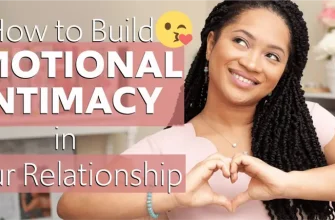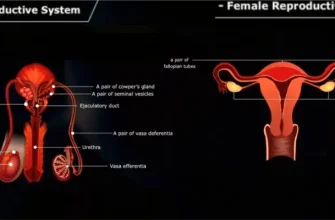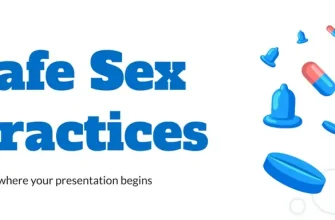Effective communication is the cornerstone of any successful relationship. Whether between romantic partners, family members, or friends, the ability to express thoughts, feelings, and needs clearly can make the difference between a thriving relationship and one that struggles. Studies have consistently shown that communication problems are one of the leading causes of relationship breakdowns. For instance, a survey found that 65% of divorcing couples cited communication issues as a significant factor in their decision to separate (Cummings et al., 2003). This article explores the importance of communication in relationships, backed by facts, figures, and references to reliable sources.
The Impact of Communication on Relationship Satisfaction

Research by Dr. John Gottman, a leading expert on marital stability, indicates that couples who engage in regular, open communication report higher levels of relationship satisfaction (Gottman & Silver, 1999). Gottman’s studies suggest that the quality of a couple’s communication predicts marital happiness and stability with over 90% accuracy.
Moreover, a study published in the Journal of Social and Personal Relationships found that effective communication is directly correlated with relationship satisfaction (Sprecher & Hendrick, 2004). The researchers observed that couples who practice active listening and express empathy tend to report higher levels of intimacy and trust.
Common Communication Barriers

Understanding common communication barriers can help individuals navigate and improve their interactions. Some prevalent obstacles include:
- Assumptions and Misinterpretations: Assuming a partner knows what you feel or need without expressing it can lead to misunderstandings.
- Emotional Disconnect: Stress and emotional distress can hinder one’s ability to communicate effectively.
- Technological Interference: Over-reliance on digital communication can reduce the quality of face-to-face interactions. A Pew Research Center survey reported that 25% of partnered adults felt their significant other was distracted by their mobile phone when they were together (Pew Research Center, 2014).
Strategies for Improving Communication

To enhance communication within relationships, consider the following evidence-based strategies:
- Active Listening: Fully concentrating on what is being said rather than passively hearing the message. Research shows that active listening can significantly reduce misunderstandings (Weger et al., 2014).
- Use of “I” Statements: Expressing feelings using “I” statements rather than accusatory “you” statements can reduce defensiveness and promote understanding.
- Regular Check-ins: Setting aside time to discuss the relationship can help address issues before they escalate. According to a study in the Journal of Consulting and Clinical Psychology, couples who participated in a relationship education program that included regular check-ins reported improved communication and relationship satisfaction (Halford et al., 2001).
The Role of Nonverbal Communication

Nonverbal cues, such as body language and facial expressions, play a significant role in communication. While the exact percentages vary, experts agree that a substantial portion of communication is conveyed nonverbally (Burgoon et al., 2016). Being aware of nonverbal signals can enhance understanding and reduce miscommunication.
The Consequences of Poor Communication

Ineffective communication can lead to a range of negative outcomes, including:
- Increased Conflict: Misunderstandings can escalate into arguments.
- Emotional Distance: A lack of communication can cause partners to feel disconnected.
- Erosion of Trust: When communication breaks down, trust can be compromised.
The American Psychological Association notes that couples who do not address communication issues are more likely to experience dissatisfaction and consider separation (APA, 2016).
Communication is not just about exchanging information; it’s about understanding the emotions and intentions behind the information. By prioritizing effective communication, individuals can foster stronger, more fulfilling relationships. As research consistently shows, the effort invested in improving communication skills pays dividends in relationship satisfaction and longevity.
References:
- American Psychological Association. (2016). Communication Tips for Healthy Relationships.
- Burgoon, J. K., Guerrero, L. K., & Floyd, K. (2016). Nonverbal Communication. Routledge.
- Cummings, E. M., Goeke-Morey, M. C., & Papp, L. M. (2003). Children’s responses to everyday marital conflict tactics in the home. Child Development, 74(6), 1918–1929.
- Gottman, J. M., & Silver, N. (1999). The Seven Principles for Making Marriage Work. Three Rivers Press.
- Halford, W. K., Sanders, M. R., & Behrens, B. C. (2001). Can skills training prevent relationship problems in at-risk couples? Four-year effects of a behavioral relationship education program. Journal of Family Psychology, 15(4), 750–768.
- Pew Research Center. (2014). Couples, the Internet, and Social Media.
- Sprecher, S., & Hendrick, S. S. (2004). Self-disclosure in intimate relationships: Associations with individual and relationship characteristics over time. Journal of Social and Clinical Psychology, 23(6), 857–877.
- Weger Jr, H., Castle Bell, G., Minei, E. M., & Robinson, M. C. (2014). The relative effectiveness of active listening in initial interactions. International Journal of Listening, 28(1), 13-31.

Hayden McKee
Relationship Editor
Born in 1977 in Austin, Texas, Hayden graduated with a Bachelor’s in Psychology from the University of Texas at Austin in 2009 and earned a Master’s in Social Psychology from the University of Colorado Boulder in 2011.
With over 10 years of experience in relationship counseling and content creation, Hayden has worked with more than 300 clients and authored dozens of articles on intimacy, communication, and modern dating trends. Passionate about fostering healthy relationships, Hayden brings a blend of academic insight and practical advice to EroticThreads readers.








